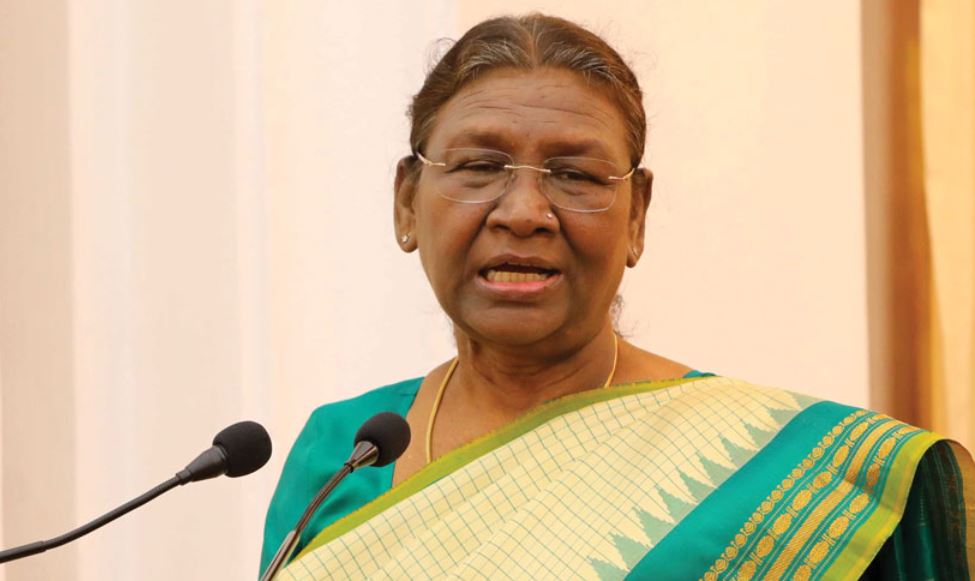President Droupadi Murmu, in a decisive move, prorogued both Houses of Parliament following the conclusion of the inaugural session under the new government. This action underscores the evolving political landscape and sets the stage for forthcoming legislative activities.
Proroguing Parliament: A Significant Act
On Thursday, President Murmu prorogued both the Lok Sabha and the Rajya Sabha upon the recommendation of the Cabinet Committee on Parliamentary Affairs. This procedural closure marks the end of the first session of the 18th Lok Sabha and the 264th session of the Rajya Sabha.
Parliamentary Affairs Minister Kiren Rijiju announced that the decision to prorogue both Houses was taken after careful consideration by the Cabinet Committee on Parliamentary Affairs. The Lok Sabha adjourned sine die on July 2, while the Rajya Sabha followed suit on July 3. This marks the conclusion of the initial legislative session after the establishment of the new government.
The First Session: An Overview
The first session of the 18th Lok Sabha was a pivotal one, characterized by significant legislative activities and discussions. As the lower house concluded its proceedings, the focus now shifts to the upcoming Budget Session, scheduled to commence on July 22. This session is anticipated to address key economic policies and fiscal planning, setting the tone for the government’s legislative agenda.
The Rajya Sabha’s 264th session mirrored the lower house in terms of legislative productivity and deliberations. The prorogation of both Houses signals a temporary halt in parliamentary proceedings, providing lawmakers with a brief interlude before reconvening for the Budget Session.
The Role of Prorogation in Parliamentary Democracy
Prorogation, a formal process in parliamentary democracies, involves the cessation of all parliamentary business until the next session is summoned. This act is distinct from adjournment sine die, which temporarily suspends parliamentary activities without specifying a return date. Prorogation ensures the formal closure of a parliamentary session, allowing for the reset of legislative priorities and the introduction of new agendas.
In the context of the Indian Parliament, the president’s power to prorogue the Houses signifies an essential mechanism to manage the legislative calendar. This move allows the government to strategize and prepare for the next session, ensuring continuity in governance and policymaking.
Looking Ahead: The Budget Session
The forthcoming Budget Session, set to begin on July 22, is poised to be a crucial period for the government. It will involve the presentation and approval of the national budget, which outlines the government’s fiscal strategy and economic priorities for the coming year. Lawmakers will engage in rigorous debates and discussions, scrutinizing the budget proposals and their implications for the country’s economy.
The Budget Session is also expected to witness the introduction of new bills and legislative reforms. The government aims to address pressing issues, including economic growth, social welfare, and infrastructure development. This session will be a test of the government’s legislative acumen and its ability to navigate complex policy challenges.
The Political Climate: An Evolving Landscape
The prorogation of Parliament comes at a time of significant political activity in India. The new government, having recently assumed office, is working to implement its policy agenda and deliver on its electoral promises. The conclusion of the first session provides an opportunity to reflect on the initial legislative achievements and plan for future initiatives.
Political analysts view the prorogation as a strategic move, allowing the government to regroup and prepare for the challenges ahead. The evolving political climate demands adept governance and effective policymaking, ensuring that the government’s objectives align with the nation’s needs.
Conclusion
President Murmu’s decision to prorogue both Houses of Parliament marks a pivotal moment in India’s legislative journey. As the government gears up for the Budget Session, the focus remains on addressing key policy issues and fostering economic growth. The evolving political landscape requires a balanced approach, combining strategic planning with decisive action.
As India navigates this new phase of governance, the importance of parliamentary processes and democratic principles cannot be overstated. The prorogation serves as a reminder of the dynamic nature of democracy, where legislative activities and political strategies converge to shape the nation’s future.
Key Learning Points:
| Topic | Summary |
|---|---|
| Prorogation | Formal cessation of parliamentary business until the next session. |
| Parliamentary Procedure | Distinction between prorogation and adjournment sine die. |
| First Session Overview | Summary of legislative activities in the first session of the 18th Lok Sabha and 264th Rajya Sabha. |
| Budget Session | Upcoming session focused on economic policies and fiscal planning. |
| Political Climate | Current political environment and strategic implications of prorogation. |
| Governance Strategy | Government’s approach to preparing for the next legislative session. |
Soumya Smruti Sahoo is a seasoned journalist with extensive experience in both international and Indian news writing. With a sharp analytical mind and a dedication to uncovering the truth, Soumya has built a reputation for delivering in-depth, well-researched articles that provide readers with a clear understanding of complex global and domestic issues. Her work reflects a deep commitment to journalistic integrity, making her a trusted source for accurate and insightful news coverage.



